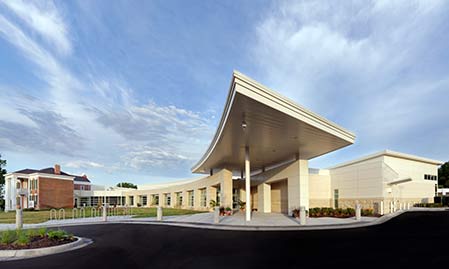Although many posts on this blog are about my life, I don’t aspire to write a memoir. I’m interested in my life, but I don’t know how many other people would be. I might be able to tell amusing anecdotes, but I doubt I’d be able to develop an overall arc to my life—at least not one I’d be willing to write about. As an attorney and a human resources professional, I know a lot of stories I can never tell.

Nevertheless, I attended a program on writing memoir recently at The Story Center, which is sponsored by the Mid-Continent Public Library in the Kansas City area and operates out of the library’s Woodneath Branch, about a fifteen minute drive from my home. I want to support writing programs in my part of the metropolitan area, and The Story Center is doing an excellent job of providing developmental opportunities for writers.
So off I went to the memoir program, with low expectations of usefulness. Maybe I would learn something about story structure that I could apply to writing novels. Or maybe I’d get some ideas for blog posts.
The first part of the program involved a series of prompts to help the participants think about memoir. The instructor, Matthew Frederick, a writer and literary agent at Fairbank Literary Representation, started us by asking for a title of our memoir. Since I had no intention of writing a memoir, I had no title.
The next prompt was to list a few vignettes from our past. That I could do. Then, after we reflected a bit on the vignettes we had listed, he asked us to articulate “the big reveal” in our project.
By this time, I was into the exercise. I had decided I wanted to write about my relationship with my mother, I had a list of stories about her, and my reveal was “I’m a lot more like my mother than I ever wanted to be . . . and that’s OK with me.”
The session continued, with discussions about who is the protagonist in a memoir (almost always the writer), who are the antagonists (both internal and external—because we are often our own worst enemy, though we may think others are thwarting us), how to place one’s own life in the broader social and historical context, and how to choose a lens through which to tell the story.
That’s a lot to think about in two hours.
After lunch, we returned to discuss story structure as it applies to memoir. I had anticipated getting more out of this part of the day than the writing prompt session, but it turned out that a lot of what Mr. Frederick had to say about structuring a memoir I’d heard before in learning to structure a novel—the three act model, the hero’s journey, etc. Besides, when I’d started the day without even a kernel of an idea, getting to structuring a book seemed a monumental task.
Mr. Frederick’s basic advice was to start with the details, then pull the structure of the story out of the details. Only then will you know which details are relevant. He told us that a memoir has a public story and a private story—why we had thought earlier about placing our lives in a social and historical context. Some memoirs focus on the public story and others on the private story, but both should be included in some fashion. And the climax of a memoir is where the public and private stories come together.
 I did develop a structure for a book about my changing relationship with my mother over the span of my life. (Though Mr. Frederick said that a memoir should not cover an entire life.) I don’t know whether I will ever write this story. I still don’t aspire to. But I was able to spend the day thinking about my life and my mother. Many of the insights I had might find their way into this blog over time. Therefore, program was worth it. (All The Story Center programs are free, so the cost was a day of my life. We can all use a day now and then to reconsider our lives.)
I did develop a structure for a book about my changing relationship with my mother over the span of my life. (Though Mr. Frederick said that a memoir should not cover an entire life.) I don’t know whether I will ever write this story. I still don’t aspire to. But I was able to spend the day thinking about my life and my mother. Many of the insights I had might find their way into this blog over time. Therefore, program was worth it. (All The Story Center programs are free, so the cost was a day of my life. We can all use a day now and then to reconsider our lives.)
Have you ever thought about the social and historical context of your own life? What is the public story in which you have participated?




Great post. I’m primarily a poetry and blog writer but looking to expand my writing
repertoire. I think writing a memoir sounds challenging and fun. Good luck.
Thanks. For the moment, writing novels is challenging enough. But maybe someday a memoir will seem like the right next step.
I agree with you, Theresa. I don’t want to start a novel of my life. The young years during WW II were enough for me! It is interesting when researching a historical novel, you begin to put 2 and 2 together and come up with plausible conclusions you hadn’t thought of before.
For instance, I was born almost a year after Pearl Harbor. My folks had already been married over four years by that infamous date in history. Did the U.S. entering the war have something to do with my conception?
To find the answer, read Hard Times in the Heartland.
It sounds like a beneficial program, Theresa. I hope you do write about the relationship with your mother…sounds like it could be interesting.
My memoir could be written on one page. 🙂
Thank you for your summary and personal experience with your memoir class. I’m working on a type of memoir of someone else’s life, but all of Mr. Frederick’s advice applies.
Joyce Ann, I think there are a lot of similarities between memoir and biography or autobiography. They all need to have some basis in fact, they are all creative nonfiction, they all must tell a story and not just be a recitation of facts. The differences are probably a matter of degree–Whose point of view tells the story? How much emphasis on story versus fact?
I hope your project is going well.
Theresa
Very interesting. One of the troubles with my memoir is that the story itself does cover my whole life because it’s about my relationship with my father. What is important is what happened when I was young and then what happened when I was old and right before my father died. There’s a long time in between. Working on this, so I agree in general about how a memoir should be about a whole life, but it might cover that time period in one way or another, although not be about the protagonist’s whole life.
Good luck on your project, Luanne. I’m sure you’ll find a way to meld your childhood and the later timeframe in the story arc. But it sound challenging.
Theresa
It’s been challenging. I predicted it would take 10 years to write it. It’s been 8.